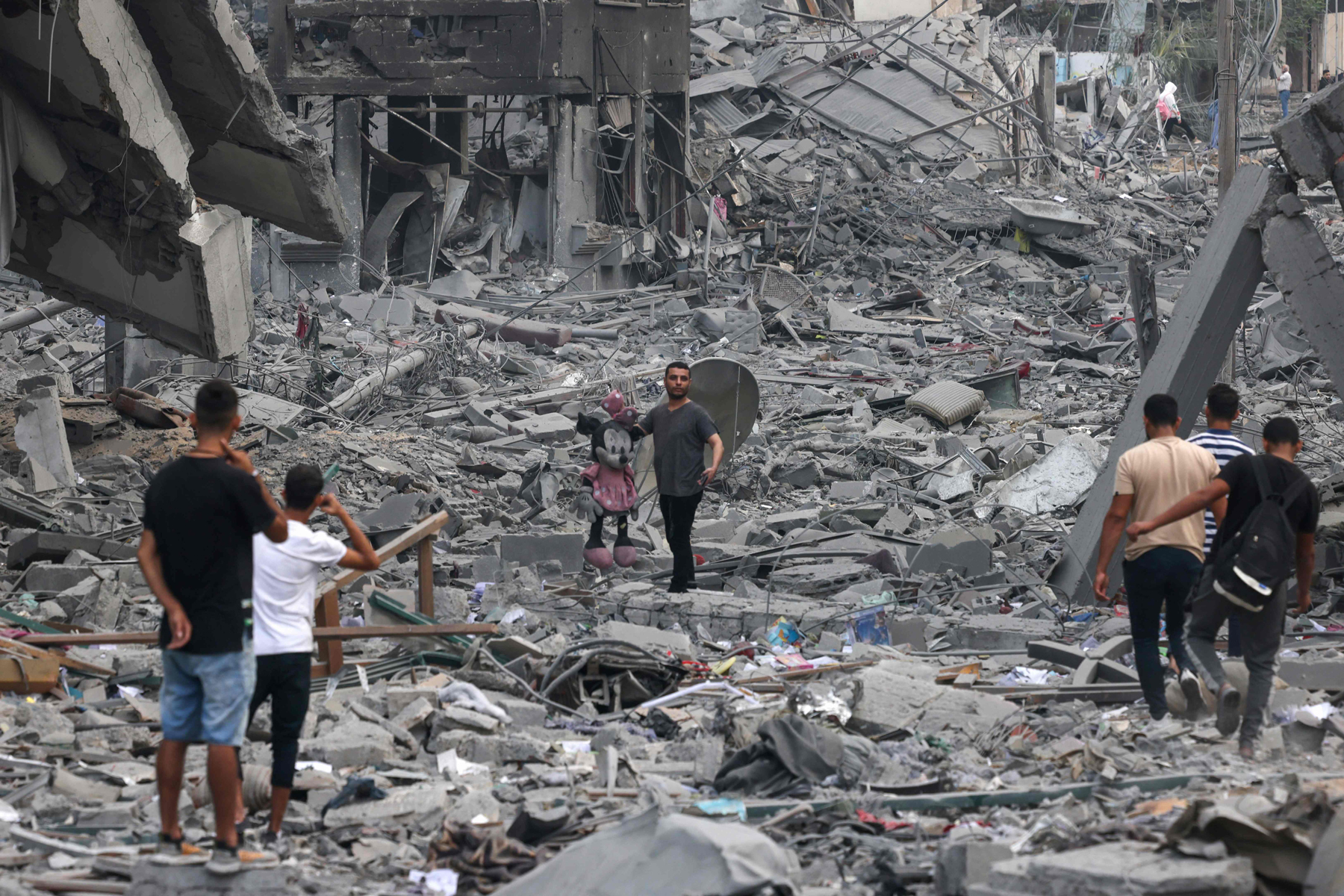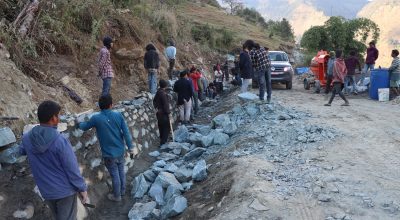
WASHINGTON, DC – In the wake of the atrocities committed by Hamas on October 7, Israel has every right and reason to pursue a sustained military campaign aimed at dismantling the terrorist group. And Israelis appear determined to do so.
Yet they also need to heed US President Joe Biden’s words of caution. During his visit to Tel Aviv on October 18, Biden empathized with the rage Israelis feel. “I understand, and many Americans understand,” he said. But Biden also advised Israelis not to be consumed by their fury. “After 9/11, we were enraged in the United States,” he warned, “and while we sought justice and got justice, we also made mistakes.” Two days later, in a primetime television address, Biden reiterated his call for the government of Israel “not to be blinded by rage.”
What would it look like in practice for Israel to follow Biden’s advice? Which lessons should the Israeli government draw from the strategic mistakes that the US made after the September 11, 2001, terrorist attacks?
First, while Israel should use its military capability to hit narrowly defined military targets –Hamas leaders, command centers, weapons caches, and tunnels – officials should be under no illusion that brute force can achieve a desired political outcome. In both Afghanistan and Iraq, the US learned the hard way that superior military strength, while useful for eliminating adversaries, rarely produces the intended political objective.
Despite two decades of costly US involvement, Afghanistan is back in the hands of the Taliban, and Iraq is beset by political dysfunction and communal cleavages. While Israel has no choice but to use force to defang Hamas, it must employ other instruments – diplomacy, humanitarian assistance, economic opportunity – to shape what comes next.
Second, although Israel’s military campaign may still be in its early stages, policymakers need to begin planning for governance of a post-Hamas Gaza. The US was caught flat-footed after dismantling the old order in Iraq and Libya; being unprepared to build something new only brought bedlam.
Israel needs to prepare now for the day after the fighting stops. Will it look to the Palestinian Authority to administer Gaza? What role will the United Nations play? Might it make more sense to assemble a coalition of the willing – such as the US, the European Union, Egypt, and Qatar – to oversee reconstruction and governance, at least at the outset? Now is the time to begin addressing these questions.
Third, even as it embarks on a robust military campaign against Hamas, Israel should, to the extent possible, limit damage to Gaza’s physical and institutional infrastructure; otherwise, it risks dooming the remaining population to prolonged suffering or even societal collapse.
The US unwisely dismantled Iraq’s governmental institutions, setting the stage for chaos, a tenacious Sunni insurgency, and growing Iranian influence. Despite the ugly results in Iraq, NATO proceeded to shatter Libya’s political foundations, resulting in a failed state exploited by extremist groups and subject to enduring tribal division. If Israel levels much of Gaza, radicalism and violent extremism are likely to emerge from the rubble.
Finally, Israel needs to play the long game, keeping in mind that the US continues to suffer from the lasting damage produced by its strategic mistakes in the Middle East. Toppling Iraq’s government empowered Iran, which now has potent proxies – including Hamas – throughout the region. And Afghanistan has descended into a humanitarian nightmare in the wake of the US withdrawal.
Moreover, America’s reputation has not recovered from images of prisoner abuse at Abu Ghraib, reports of the CIA’s “rough” interrogation techniques, the indefinite detention of prisoners at Guantánamo Bay in Cuba, and the many drone strikes that took the lives of innocent civilians. These and other practices have indelibly tarnished the country’s image in the court of world opinion.
Israel is already fighting an uphill battle in that same court. While Israel has a right to defend itself, and the murders and kidnappings committed by Hamas warrant forceful retaliation, the Israelis should bend over backwards to comply with international humanitarian law. That means minimizing the loss of civilian life while ensuring a steady flow of medicine, food, and fuel into Gaza.
Exercising such restraint will assuage the widespread political ire that Israel’s continued campaign against Hamas is sure to generate. It will also reduce the likelihood of the conflict widening into a regional war; make it easier to maintain the Abraham Accords, which established diplomatic relations between Israel and the United Arab Emirates, Bahrain, Morocco, and Sudan; and eventually enable Israel and Saudi Arabia to resume talks on diplomatic normalization.
Israel’s conduct of the war in Gaza will also shape the tenor of its future relationship with the Palestinian community. Hamas’s heinous attack, and the new round of violence it has spawned, has revealed that the previous status quo was untenable. Given that they live cheek-by-jowl, Israelis will never be secure unless Palestinians are as well, and vice versa. The two peoples will eventually need to work together to secure a two-state solution that brings lasting peace. Perhaps the tragedy of the current conflict can drive that reality home to Israelis and Palestinians alike.
Charles A. Kupchan, Senior Fellow at the Council on Foreign Relations, is Professor of International Affairs at Georgetown University and the author of Isolationism: A History of America’s Efforts to Shield Itself from the World (Oxford University Press, 2020).
Copyright: Project Syndicate, 2023.
www.project-syndicate.org
















